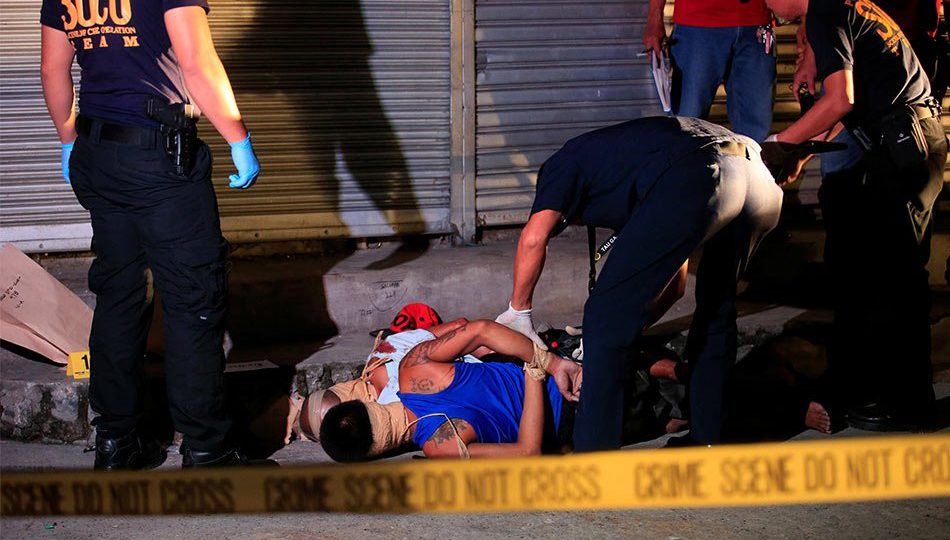While “neutralize” and “negate” mean to “render something ineffective” or nullify, these words have become accepted euphemisms in police parlance for “kill.”
This was the argument presented at the Supreme Court earlier today by petitioners seeking to stop the government’s cornerstone war against drugs.
They say that the usage of these words in the memo from National Police Chief Ronald Dela Rosa that launched what would be known as “Operation Double Barrel” should be understood as encouraging the police to kill suspects, making the drug war unconstitutional.
READ: Supreme Court to hear oral arguments vs war on drugs
“CMC 16 [the memo’s designation] clearly and repeatedly orders the police to neutralize and negate suspected criminals,” lawyer Jose Manuel Diokno argued.
“Unlike arrests, search and seizures your honor, ‘neutralization’ and ‘negation’ are not legal terms, they have no counterpart in law, but in police parlance, as used no less by than the chief himself, to ‘neutralize’ means to ‘kill’,” he added.
Justice Antonio Carpio disputed Diokno’s argument, however, arguing that neutralize and negate don’t necessarily mean to kill.
“It’s a general term, and it has been used even in the previous administration,” he said. “Also, the word ‘negation’ has been used in the PNP (Philippine National Police) manual of 2014.”
Carpio cited a 2016 newspaper report in which dela Rosa was quoted as having defined “neutralize” as “surrender, arrested, or killed.”
The memorandum circular, aka “Project Double Barrel,” promotes a two-track strategy: the arrest, surrender, and “neutralization” of alleged drug users and pushers for “demand-reduction,” as well as “high-value targets” for “supply reduction.”
Joel Butuyan, a lawyer arguing today for another petition against the drug war, says the memorandum violates the Bill of Rights provided in the Constitution.
“Never in our history as a people has it happened that state agents, our police, admitted to being responsible for thousands of civilian killings, and never in our history as a country have thousands of killings been justified on the basis of a government circular,” he said
Diokno also argued that “Oplan Tokhang” (a blending of the Visayan words for “knock” and “plead”) operations, where police knock at doors of suspected drug users and ask them to surrender, pose a “grave threat” to the lives of the suspects and violate their rights.
“By commanding the police to persuade suspected illegal drug personalities to stop their illegal drug activities, ‘tokhang’ concludes that suspected criminals are already guilty, for why else would they [need to] be persuaded to stop their illegal activities if they are not guilty?” Diokno said.
Butuyan is representing Maria Juanita Daño and 47 other petitioners in a petition to bar police from conducting any anti-illegal drugs or anti-criminal operations in San Andres Bukid in Manila, without the required coordination and presence of representatives from the barangay (village), the Philippine Drug Enforcement Agency, and the media, among others.
Their petition pointed out that there were 35 “drug-related deaths” in the area spanning 13 months from the end of 2016 to today.
Both petitions seek the issuance of a writ of amparo (or a protection order) for certain individuals allegedly being harassed by police in the Daño petition.
with a report from ABS-CBN News




